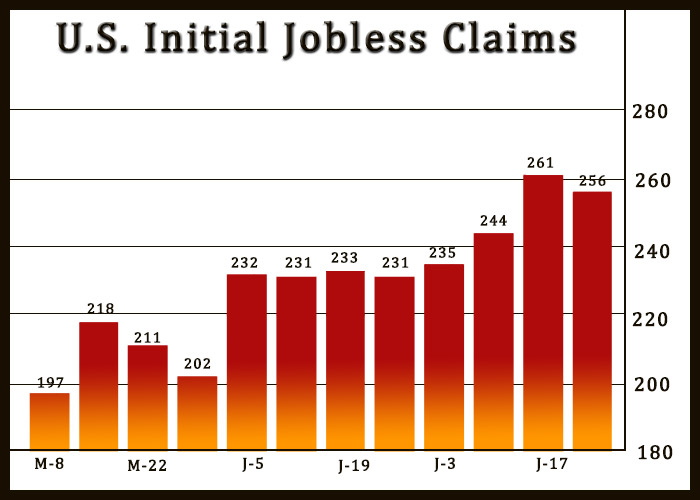After reporting modest increases in first-time claims for U.S. unemployment benefits over the three previous weeks, the Labor Department released a report on Thursday showing a slight pullback in initial jobless claims in the week ended July 23rd.
The report showed initial jobless claims edged down to 256,000, a decrease of 5,000 from the previous week’s revised level of 261,000.
Economists had expected jobless claims to inch up to 253,000 from the 251,000 originally reported for the previous week.
The upwardly revised figure for the previous week reflects the highest level of jobless claims since they hit 265,000 in the week ended November 13, 2021.
Meanwhile, the Labor Department said the less volatile four-week moving average crept up to 249,250, an increase of 6,250 from the previous week’s revised average of 243,000.
“While we think the risk may be for further increases in claims as economic growth slows, we don’t anticipate a sharp rise from current levels as labor market conditions are still tight, with demand for workers outstripping supply,” said Nancy Vanden Houten, Lead U.S. Economist at Oxford Economics.
The report also showed continuing claims, a reading on the number of people receiving ongoing unemployment assistance, fell by 25,000 to 1.359 million in the week ended July 16th.
The four-week moving average of continuing claims still rose to 1,362,000, an increase of 8,750 from the previous week’s unrevised average of 1,353,250.
“We don’t see further downside for continued claims, but don’t foresee a significant rise either based on our outlook for job growth to continue, although at a much slower pace, and for more workers to return to the labor force,” said Vanden Houten.
Next Friday, the Labor Department is scheduled to release its more closely watched report on the employment situation in the month of July.
Economists currently expect employment to jump by 260,000 jobs in July after surging by 372,000 jobs in June. The unemployment rate is expected to hold at 3.6 percent.
Source: Read Full Article
